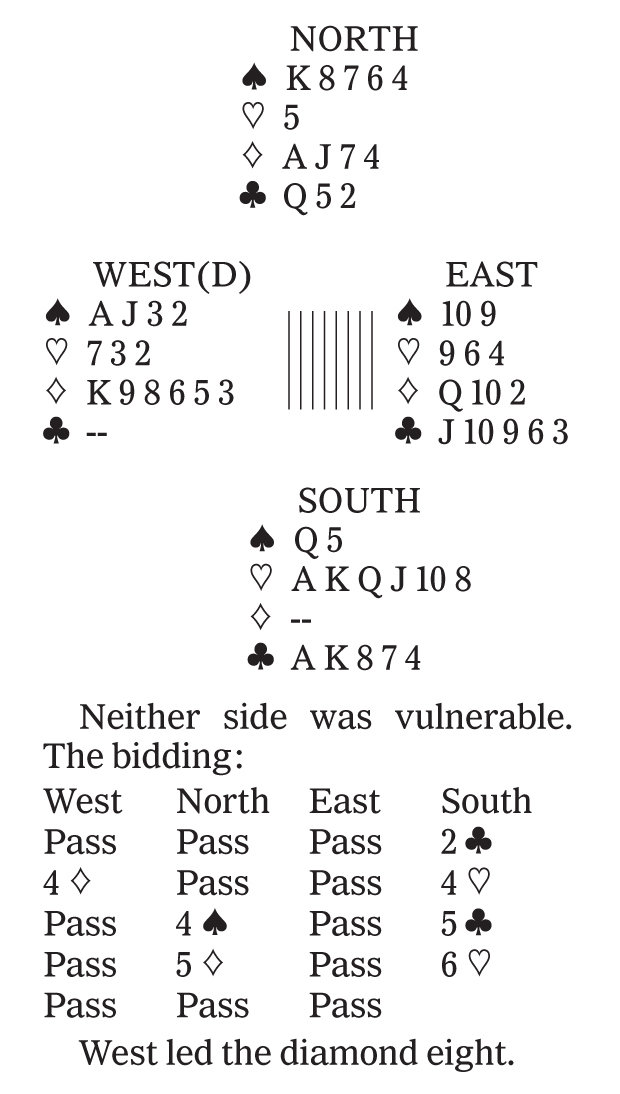![]() By PHILLIP ALDER MARCH 4, 2015
By PHILLIP ALDER MARCH 4, 2015
Steve Conrad of Manhasset, N.Y., teaches bridge on cruise ships. Teachers usually have a good eye for an instructive deal. Conrad sent one to me, modestly acknowledging that he had misplayed, immediately saw what he had done wrong and wished he could have taken a mulligan.
The deal occurred during a pair event at a regional. How should South have played in six hearts after West led a low diamond?
It looked inconsistent for West to pass, then to jump-overcall four diamonds. He did not, however, want to open two diamonds, because his hand was so suitable for play in either major. Then, once his partner could not open in third position and South announced a big hand, it was reasonable to try to inconvenience the opponents. Of course, if South had held a big balanced hand, the penalty could have proved substantial.
In six hearts, if the clubs are breaking 3-2, there will be no problems. But as you will have noticed, they are splitting 5-0.
At the table, declarer won the first trick with dummy’s diamond ace and discarded a club. Then, with accurate defense, he could no longer make his contract.
At Trick 1, South cannot be sure what to discard on the diamond ace. He must instead ruff in his hand, draw trumps and lead his low spade toward dummy’s king. How does West defend?
If he wins with his ace, declarer takes two spades, six hearts, one diamond and three clubs. Or, if West plays low, South wins with dummy’s king, discards his spade queen on the diamond ace and leads a low club, covering East’s card with his eight (or capturing a higher club, should East play one). That way, declarer assures at most one club loser.
This spade play is called a Morton’s Fork, after Cardinal Morton, whom Henry VII made the archbishop of Canterbury in 1486 and lord chancellor of England in 1487. Cardinal Morton applied an interesting theory to tax collection: If someone had a lavish lifestyle, he clearly had money to spare for the king. And if a person lived frugally, he was undoubtedly hoarding his money and could afford to give some to the king. Like the low-spade play in this deal, it was a case of heads the king won, tails the citizen lost.
Esta entrada también está disponible en: Spanish

